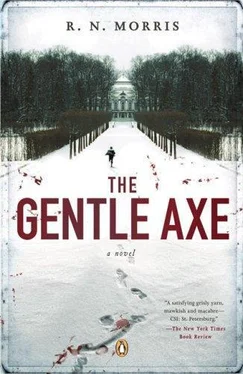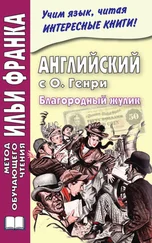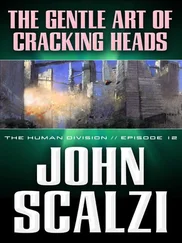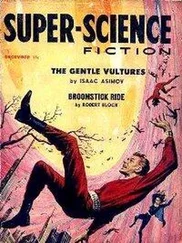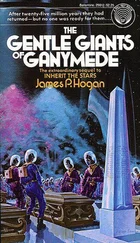R. Morris - The Gentle Axe
Здесь есть возможность читать онлайн «R. Morris - The Gentle Axe» весь текст электронной книги совершенно бесплатно (целиком полную версию без сокращений). В некоторых случаях можно слушать аудио, скачать через торрент в формате fb2 и присутствует краткое содержание. Год выпуска: 2008, ISBN: 2008, Издательство: Penguin Books, Жанр: Исторический детектив, на английском языке. Описание произведения, (предисловие) а так же отзывы посетителей доступны на портале библиотеки ЛибКат.
- Название:The Gentle Axe
- Автор:
- Издательство:Penguin Books
- Жанр:
- Год:2008
- ISBN:9780143113263
- Рейтинг книги:5 / 5. Голосов: 1
-
Избранное:Добавить в избранное
- Отзывы:
-
Ваша оценка:
- 100
- 1
- 2
- 3
- 4
- 5
The Gentle Axe: краткое содержание, описание и аннотация
Предлагаем к чтению аннотацию, описание, краткое содержание или предисловие (зависит от того, что написал сам автор книги «The Gentle Axe»). Если вы не нашли необходимую информацию о книге — напишите в комментариях, мы постараемся отыскать её.
The Gentle Axe — читать онлайн бесплатно полную книгу (весь текст) целиком
Ниже представлен текст книги, разбитый по страницам. Система сохранения места последней прочитанной страницы, позволяет с удобством читать онлайн бесплатно книгу «The Gentle Axe», без необходимости каждый раз заново искать на чём Вы остановились. Поставьте закладку, и сможете в любой момент перейти на страницу, на которой закончили чтение.
Интервал:
Закладка:
“All the more reason to hasten our journey,” said Ulitin.
Nikita stared at the deputy investigating magistrate for a long time, as if he had just said something incomprehensibly stupid. He then shrugged and took up the reins again. He shook his head and allowed the energy of his bewilderment to pass down the reins. The two horses shouldered heavily into the day, snorting their own reluctance back to their driver.
When the first flakes touched their faces, Nikita turned briefly in the same stiff, backward-leaning way toward Ulitin. But he said nothing. Neither of them had spoken for a long time.
Before long the air was filled with swirling flakes. They looped and spiraled but most of all fell, with a frantic and dizzying insistence. First the woods on either side disappeared from view. Then the posts that marked the road. Now all that Ulitin could see, apart from the teeming rush of the blizzard, was the back of the trace horse.
Nikita pulled on the reins, and they slid to a halt.
“We’ve lost the road,” he said, shielding his eyes and peering through the constantly shifting layers.
Ulitin said nothing.
Without warning Nikita jumped down from the box seat. He clapped his hands, nodded, then bustled off into the storm. In a moment he had vanished from sight.
Ulitin felt suddenly very alone. He heard the horses shift and shiver uneasily. Last night, with Drozdov, he had talked of the soul and of the question of its survival after death. With the abstract confidence of young men, they had resolved the issue beyond dispute. Drozdov was a doctor. He had vouched for the physiological basis of personality. The argument was irrefutable. If a subject’s personality could become changed through morbid disease, as in the case of dementia praecox, it was logical to argue that it did not have its basis in anything eternal and immutable. And if disease can mutate the subjective self, it is also logical to conclude that death will terminate it.
Now, sitting lost and abandoned in the middle of a furious snowstorm, Ulitin was not so sure. Or rather, he wished he had not been so sure.
He closed his eyes. It was as if he did not wish to catch himself in the act of saying a prayer.
The sleigh shook. Nikita clambered up next to him. Ulitin had never been so pleased to see another human.
“Stavrogin’s Copse. If we keep that to our right, we should find Kozelsk.”
Ulitin peered in the direction Nikita indicated. But all he could see was the maddening dance of snowflakes in front of his eyes.
They got tea and something to eat at the zemstvo hut in Kozelsk.
As they ate, they kept a close eye on the window, watching the storm intensify its rage. Ulitin became suddenly depressed and could bear it no longer. He looked away from the window and took out the telegram he had received the previous day.
GO TO OPTINA PUSTYN QUESTION F AMVROSY VERIFY OSIP MAXIMOVICH SIMONOV AT OPT PUST 29 NOV TO 11 DEC INC STOP
Ulitin handled the flimsy paper forlornly. The telegram had been sent by one Porfiry Petrovich, an investigating magistrate with the Department of the Investigation of Criminal Causes in St. Petersburg. As he touched the words, he seemed to feel a direct contact with the city, or at least with the dreams of his that it represented. His heart had quickened when he’d received it. He had seen it as an opportunity to impress important personages in the capital. Perhaps a transfer would follow. But now his ambitions had been swallowed up by the snow, and he was trapped in the zemstvo hut in Kozelsk.
He tried to imagine Porfiry Petrovich. When this proved impossible, he imagined himself walking down the Nevsky in summer.
“Well, your honor, will you look at that!”
Ulitin looked up. Nikita was pointing at the window. The storm had stopped. The sky was clear.
“Get the horses ready!”
“You’re not thinking of going now?”
“We have no time to lose,” cried Ulitin, rising to his feet.
Nikita shook his head regretfully. “No, no, no, your honor. It will be dark before I have a chance to get the sleigh out. It would be as well to wait until the morning. We will see how it is in the morning.”
Remembering how he had felt when Nikita had come back to him in the storm, Ulitin did not insist. He looked down at the telegram and felt a lump of self-pity in his throat. He blinked away the threat of tears.
They approached the monastery on the frozen river Zhidra.
Ulitin saw the gold crosses floating in the sky, the clear winter sunlight exulting on them. His heart leaped and he reproached it. They are only painted crossbeams of wood! But he could not deny that at first he had stared in amazement. For just an instant their appearance had seemed miraculous. How can that be? There was some trick, there had to be…Then they drew nearer. As the course of the river twisted their path, the crosses bobbed from one side to the other as if engaged in stately dance. And of course, it became clear. The crosses were mounted on cupolas, the blue of which had, from a distance, been indistinguishable from the sky. Gradually the domes had appeared, like a slow solidifying of the sky, forming beneath the crosses.
From the gatehouse by the river to the convent was a steep walk up a forested mountain. Ulitin had heard that some pilgrims completed it on their knees. He left Nikita and the horses at the gatehouse and set out on foot with a young monk who gave every impression of expecting him.
It’s just a way they have, thought Ulitin. They like to make a mystery out of everything.
The young monk was excitable and garrulous and seemed unable to look Ulitin in the eye. His talk was trivial, at times almost hysterical. He reminded Ulitin of a child on the eve of a holiday.
Perhaps he’s simpleminded, he thought.
“You’ve come to see Father Amvrosy,” said the young monk, whose name was Brother Innokentiy. Although he was dressed only in a monastic cassock, he didn’t seem to feel the cold. He walked quickly, despite the deep snow and the treacherous path.
Ulitin frowned in annoyance and hurried to keep up.
Brother Innokentiy smiled enigmatically. “Why else would you come? There are many who have already made the pilgrimage. Every day someone arrives. You will have to wait your turn to see him.”
“I’m not a pilgrim. I’m here on official business. I’m an investigating magistrate.”
“He won’t see you. He’s not interested in earthly affairs.”
“It’s a very important matter. I have orders from St. Petersburg. From the police authorities. It is to do with a criminal investigation.”
“He won’t talk about it. He doesn’t care about such things now. The time has gone for him to talk about such things.” Brother Innokentiy flashed one of his questing, sly glances. “What is it about? Perhaps I can help you.” His smile was insinuating.
“I have been directed to talk to Father Amvrosy.”
“But he won’t see you, I tell you. Not about this. If it was about your soul, perhaps.” Brother Innokentiy giggled unpleasantly as if he had just made a very funny, though slightly risqué joke. “He may die any moment. What if he dies before we reach the convent? You’ll have to ask me then.” One side of the monk’s mouth snagged up in a leering grin.
Ulitin slowed his pace. He was tired. But he wanted to let the monk get ahead of him. He wanted a respite from his chatter.
Brother Innokentiy waited for him to catch up. His welcoming smile had a gloating edge.
Brother Innokentiy showed him into a room that was crowded with well-to-do pilgrims. Everyone seemed to be affected by the same talkative excitement that Ulitin had sensed in the monk. As they entered, every face turned to them expectantly, there was a momentary hush, and then the din picked up again.
Читать дальшеИнтервал:
Закладка:
Похожие книги на «The Gentle Axe»
Представляем Вашему вниманию похожие книги на «The Gentle Axe» списком для выбора. Мы отобрали схожую по названию и смыслу литературу в надежде предоставить читателям больше вариантов отыскать новые, интересные, ещё непрочитанные произведения.
Обсуждение, отзывы о книге «The Gentle Axe» и просто собственные мнения читателей. Оставьте ваши комментарии, напишите, что Вы думаете о произведении, его смысле или главных героях. Укажите что конкретно понравилось, а что нет, и почему Вы так считаете.
